ZANZIBAR & MAFIA ISLANDS
Begin Planning Your Perfect Zanzibar Getaway Today!
Zanzibar is a captivating Indian Ocean archipelago steeped in history, mystery, and breathtaking beaches. Known for its atmospheric charm and idyllic setting, the islands offer a diverse range of accommodations and countless opportunities to explore and unwind. Whether you’re seeking a tranquil escape after an exhilarating safari or celebrating a romantic getaway, Zanzibar is the perfect destination. It’s an excellent addition to a Tanzania Honeymoon Safari, combining relaxation with a rich cultural experience.
Once the site of sultans’ palaces and famous for its spice plantations, Zanzibar is a must-see for any traveler visiting Tanzania. Located just 23 miles off the mainland, this island paradise feels like a world of its own. Although officially part of Tanzania, Zanzibar has its own unique identity, shaped by its distinct politics, religion, culture, and cuisine.
Historically, Zanzibar served as a bustling hub for traders from Arabia, India, and Africa, playing a pivotal role in the region’s spice and slave trades. Today, most locals identify as Zanzibari rather than Tanzanian, and the archipelago enjoys a degree of autonomy, complete with its own leaders and governing bodies. Unlike mainland Tanzania’s diverse mix of religions, Zanzibar is predominantly Muslim, further highlighting its unique character.
To uncover more about this fascinating destination, explore our Ultimate Travel Guide to Zanzibar and start planning your adventure today!
Diving and Water Sports in Zanzibar
Zanzibar is a haven for water sports enthusiasts, offering a wide range of activities that make the most of its crystal-clear waters and vibrant marine life.
Diving:
Zanzibar is renowned for its incredible diving spots, including colorful coral reefs, underwater walls, and shipwrecks teeming with marine life. Whether you’re a seasoned diver or a beginner, the island offers dive sites suitable for all experience levels. The Mnemba Atoll, one of the most famous dive sites, is known for its abundant marine species, including dolphins, sea turtles, and reef sharks.
Snorkeling:
If diving isn’t your thing, snorkeling is an excellent way to explore Zanzibar’s underwater world. Many shallow reefs around the islands, such as Prison Island or Chumbe Island, provide perfect spots for snorkelers to encounter tropical fish and coral gardens.
Kite Surfing:
Zanzibar’s steady winds, especially on the eastern coast in places like Paje, make it a top destination for kite surfing. Whether you’re a beginner or a pro, the turquoise lagoons and consistent winds offer ideal conditions.
Dhow Sailing:
Experience Zanzibar’s maritime heritage by taking a traditional dhow sailing trip. These handcrafted wooden boats are perfect for sunset cruises or exploring nearby islands.
Deep-Sea Fishing:
For those seeking adventure, Zanzibar offers deep-sea fishing trips where you can try your luck catching big game fish like marlin, tuna, and barracuda.
Whether you’re diving into the depths of the Indian Ocean or enjoying the thrill of water sports, Zanzibar is a paradise for anyone who loves the sea. Mafia Island provides an incredible opportunity to snorkel alongside majestic whale sharks!



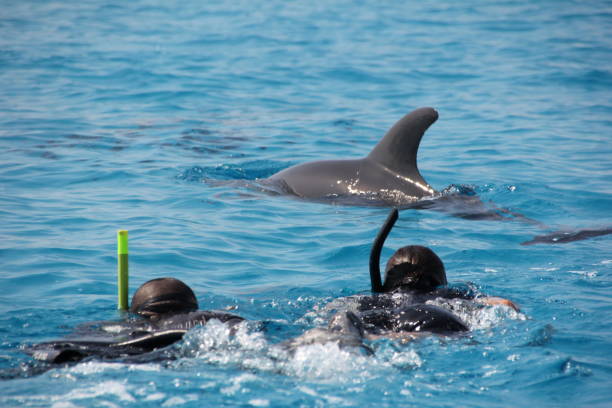
About Zanzibar’s Weather
Zanzibar experiences two distinct rainy seasons, much like the mainland. The long rainy season typically spans from March to May, following the hot East African summer. While this period offers fewer tourists and a more tranquil atmosphere, it’s worth noting that heavy rainfall is common, which might not be ideal for a dedicated beach holiday.
The short rainy season, on the other hand, occurs between November and December. These rains are much lighter and come in brief, intense bursts, quickly giving way to clear blue skies. If you’re looking for a mix of sunny days and occasional refreshing showers, this could be a great time to visit.
Experience the Nightlife in Zanzibar
When you first arrive, Stone Town’s dimly lit narrow streets and winding alleys can feel a bit intimidating, especially if you’re not familiar with the area. However, don’t let this deter you from exploring the vibrant nightlife that unfolds after sunset. Despite the cautious travel advisories, Stone Town comes alive at night with an atmosphere full of energy and local charm.
The streets are bustling with activity—children playing, couples taking evening strolls, and locals enjoying meals together. At the heart of it all is the famous Forodhani Gardens night market, a lively gathering spot where both residents and tourists indulge in a variety of freshly prepared foods.
While exploring the food stalls, it’s best to avoid shellfish skewers that may have been sitting out in the heat all day. Instead, opt for safer and equally delicious options like grilled Indian-spiced chicken or the ever-popular Zanzibar pizza, paired with a refreshing glass of freshly squeezed sugarcane juice.
Stone Town’s nightlife offers a unique blend of culture, flavors, and community spirit, making it an experience you won’t want to miss.
Zanzibar Culture
In Zanzibar, life unfolds at a leisurely pace, known locally as pole pole (slowly in Swahili). Things might not always work as expected, or your smoothie might take 45 minutes to arrive, but embracing the unhurried rhythm is part of the charm. Rest assured, the wait will often reward you with delicious results.
While it’s acceptable to drink alcohol and wear beachwear in appropriate settings, it’s important to be mindful of local customs. In Stone Town, for example, skimpy clothing and excessive drinking are best avoided out of respect for the predominantly Muslim population. Bars and restaurants catering to tourists and expats often serve alcohol, as do higher-end hotels both in town and along the coast. However, keep in mind that many locals, including your servers, may not drink alcohol themselves, so a little patience and understanding go a long way if things aren’t as polished as you might expect. For those planning to purchase alcohol, only a couple of shops in Stone Town sell it, and it’s advisable to bring your own bag to avoid drawing attention with visible bottles on the streets.
Drinking in Zanzibar isn’t limited to beach bars and rooftops. The local tea culture offers a fantastic way to connect with islanders. Many tea stands and carts open after sunset, serving hot and flavorful chai tangawizi (ginger tea). Adding vanilla, if available, makes for an especially delightful experience. Sipping a spicy mug of tea by the roadside is an excellent opportunity to people-watch and soak in the local vibe. In Stone Town, you can ask for the nearest Babu Chai stand, and someone will gladly point you in the right direction.
For music enthusiasts, Zanzibar is the birthplace of Taarab music, which derives from the Arabic word tariba (to be moved). This genre blends African, Arabic, and Indian influences, often featuring an orchestra with instruments like the accordion, violin, kanun, nay, drums, and a lead vocalist. Taarab performances can be found at various venues around Stone Town, offering a unique cultural experience that reflects Zanzibar’s rich heritage.
Stone Town
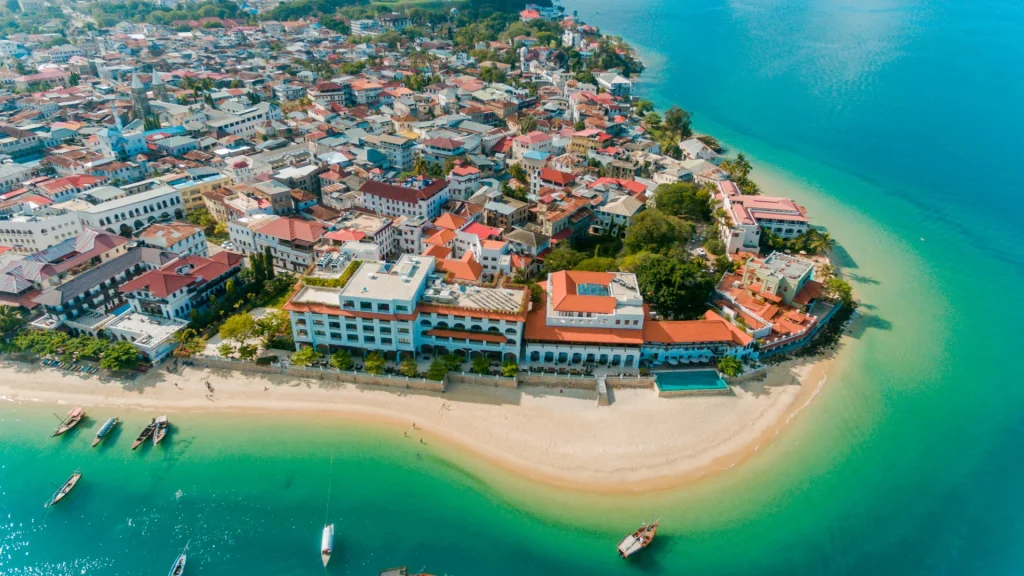
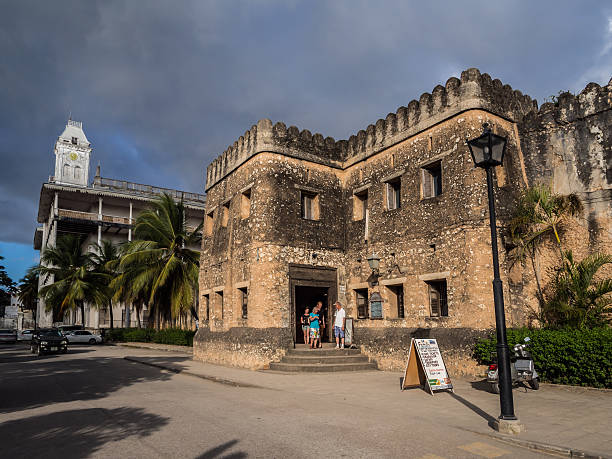
Visitors to Zanzibar typically begin and end their journey in Stone Town, the historic and cultural heart of Zanzibar City. This centuries-old hub was once the seat of the Sultans, and its crumbling palaces, bathhouses, and mosques stand as remnants of a lavish era at the center of the gold and spice trade. Spending a night or two in Stone Town offers a chance to immerse yourself in its rich history. Wander through the maze-like streets, explore ancient spice markets, and savor freshly caught seafood along the seafront, all while soaking in the vibrant atmosphere of this iconic Swahili hub.
Designated a UNESCO World Heritage Site in 2000, Stone Town is undeniably charming, though navigating its labyrinthine streets can be a challenge. While street names do exist, they are rarely used, making it easy to lose your way. But that’s all part of the adventure! Stone Town is small, safe, and welcoming, and locals are always happy to help if you ask for directions. However, sometimes the best way to experience its magic is to simply let yourself get lost and discover hidden corners of this historic gem at your own pace.
Zanzibar offers a variety of accommodations
Zanzibar boasts some of East Africa’s most luxurious resorts, offering an indulgent beach escape. However, these high-end accommodations can feel like a stark contrast to the island’s quieter, more modest way of life, where many locals live on less than $1 a day. For travelers seeking a lively atmosphere, the northern beaches of Nungwi and Kendwa are ideal. Here, you’ll find bustling nightlife and all-inclusive packages reminiscent of tropical destinations worldwide.
If you’re after a more authentic Zanzibari experience, consider exploring quieter coastal towns like Paje or Jambiani. These areas offer a harmonious blend of village life and serene island paradise, perfect for those looking to immerse themselves in the local culture while enjoying the beauty of the Indian Ocean.
With African Adventure Plus, we can design an unforgettable Zanzibar getaway tailored to your preferences. Whether you want to dedicate your entire holiday to Zanzibar’s pristine beaches or combine a thrilling safari in the Ngorongoro Conservation Area or Serengeti National Park with a relaxing resort retreat, we’ve got you covered. Let us craft a personalized itinerary that balances adventure and relaxation for your dream Tanzanian vacation. Get in touch today!

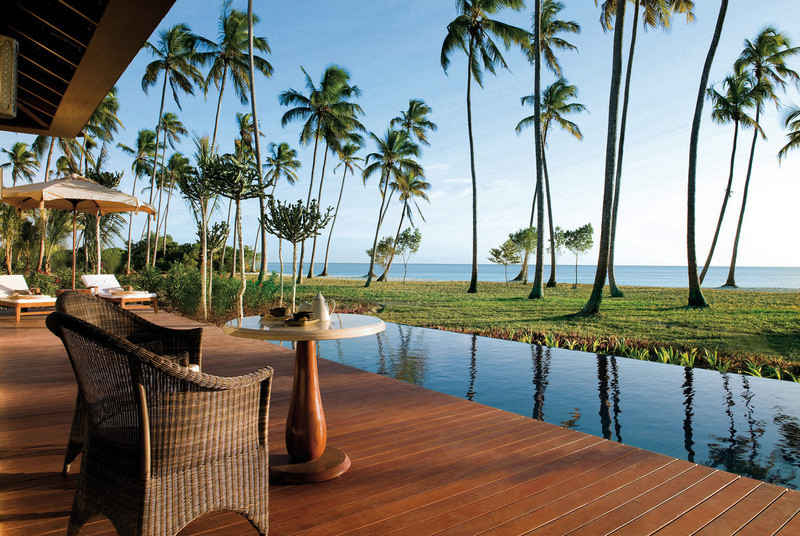
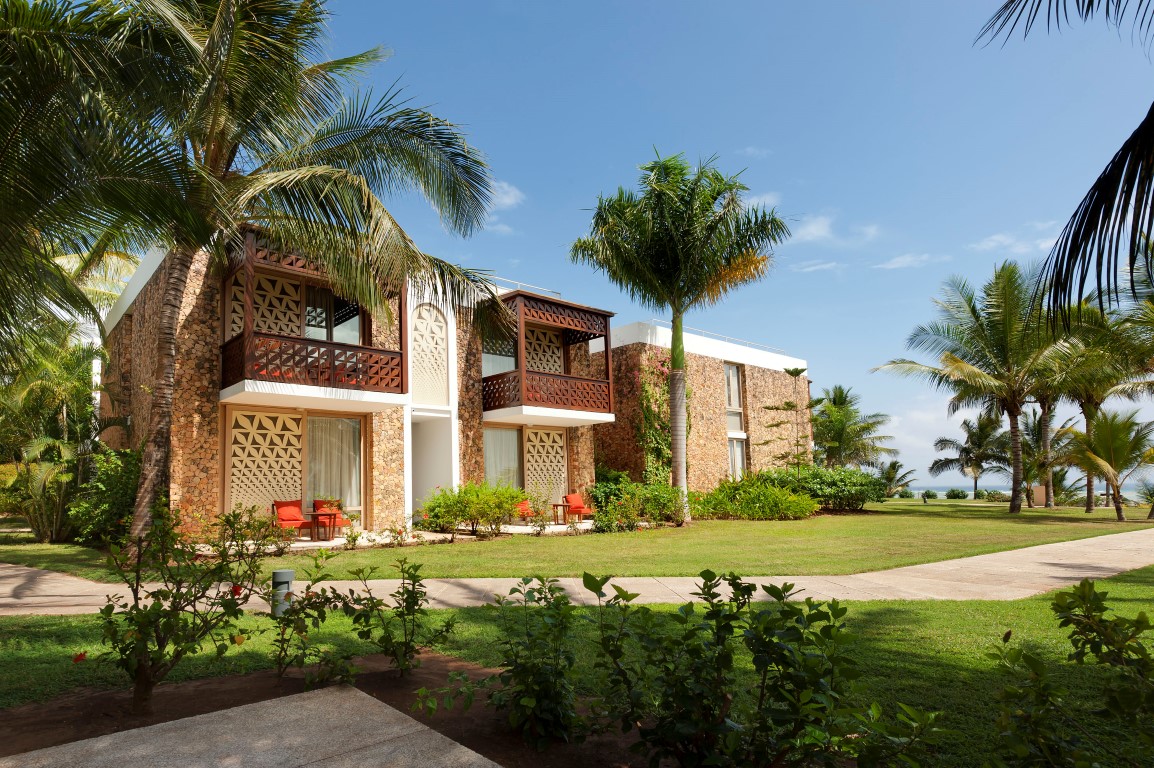
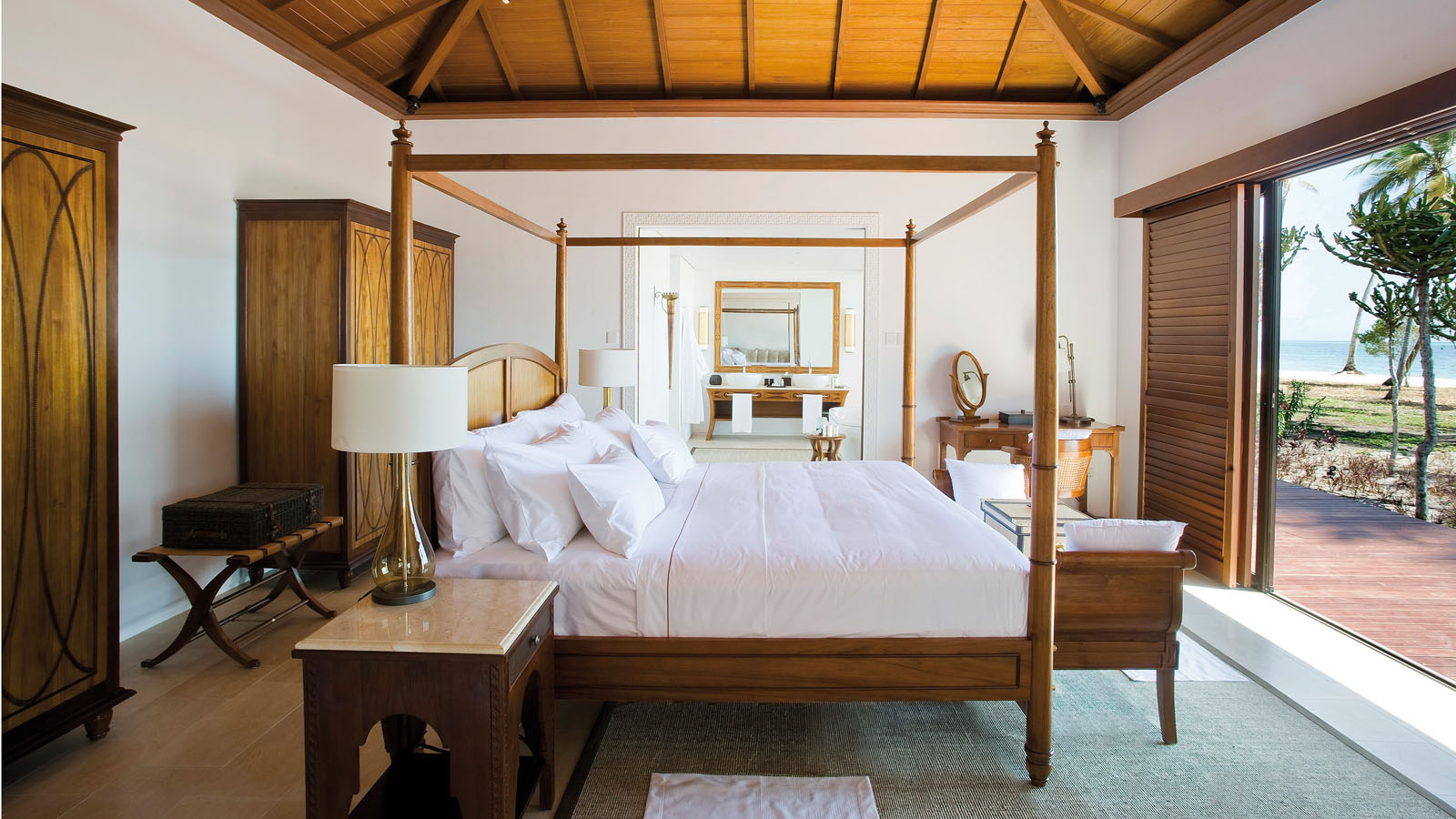
Fascinating Facts About Zanzibar:
Zanzibar is not just one island; it’s an archipelago off the coast of East Africa. The two largest islands are Unguja and Pemba, with Unguja often mistakenly referred to as “Zanzibar.”
The Anglo-Zanzibar War, fought between the Zanzibar Sultanate and the United Kingdom on August 27, 1896, holds the record as the shortest war in history, lasting only 38 to 45 minutes before a ceasefire was declared.
Zanzibar is also the birthplace of Queen’s iconic lead singer, Freddie Mercury, born in 1946 as Farouk Bulsara in Stone Town, a historic area of the island.
In 1973, Zanzibar made history by becoming the first country in Africa to introduce color television.
Known as “The Spice Islands,” Zanzibar thrives on spice exports—primarily cloves, nutmeg, cinnamon, and black pepper—which form its main economic activity alongside tourism.
